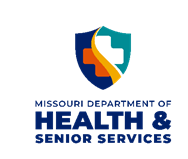August 5, 2025

Upcoming Webinar: Activating Clinical Workflow Intelligence: Guthrie’s Model for System Wide Efficiency, September 24
Health systems are under pressure to improve care coordination, but most solutions come with added cost or complexity. Guthrie proved it’s possible to do more with what you already have.
With clinical workflow technology, the health system has accelerated consults, streamlined handoffs and built a foundation for enterprise-wide automation – starting with cardiology and expanding across service lines.
Join this session to learn how clinical and support leaders at Guthrie made it happen.
You’ll Learn:
- How Guthrie used consult automation to reduce friction and improve speed of care,
- The strategy behind expanding automation across specialties and settings, and
- Lessons in change management, alignment and accountability across departments
Cost: Free
When: Wednesday, September 24, 12:00 p.m. – 1:00 p.m.
Click Here to Register






